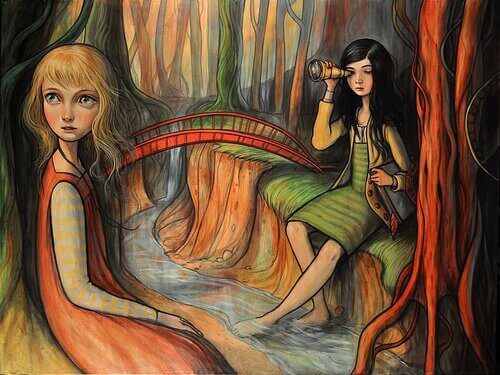If you really want to be happy, don’t be tempted to compare this moment with others from the past, which, in turn, you didn’t appreciate because you compared them to the moments that were coming. In this sense, comparison is the art of ruining life. There is no greater waste of time than comparing past times with current times.
The phrase that reads: “It was a better and better time than the risks to which the comparison exposes us. According to neurologist and psychiatrist Alan R-Hirsch, we remember the past as a combination of many different moments, in which negative emotions lose strength. “. When we remember the moments we have experienced, we mostly keep positive emotions, idealizing past moments that will always be better compared to the present moment, precisely because of the distortion we have just described.
- To evolve.
- We must write a story with our memories.
- Our history.
- But we cannot let them catch our attention.
- What happened to us yesterday may have been great.
- But it means nothing if we don’t.
- Continue our present.
- Our actions may not be an attempt to recover the irreparable.
- But they must focus on creating new moments.
In a world where comparison is a custom, classifying us as more or less intelligent, more or less beautiful, with more or less successes, it is not easy to believe in a love that does the same.
According to Festinger’s theory of social comparison, certain characteristics of the situation, such as its ambiguity, would be very relevant to motivate us to make comparisons, to which he came observing a principle that governs all social comparisons: conformity.
This theory explains how we, people, evaluate our own opinions and skills using the information we get when comparing with others, so the comparison would correspond to our need to get our own assessments.
In this sense, when we find ourselves in a situation where we interact with other people, we can preserve or affirm our autonomy and identity by differentiating ourselves from others, when a person feels that their identity is threatened, one of the most likely responses is to differentiate the most likely answers from this scale of comparison.
We compare ourselves because we need to know where we have in the world or in a group, for example, imagine two brothers. One is very studious and the other is not. The second, to protect his identity and knowing that he will not be able to stand out in the aspect where his brother stands out, will probably use his efforts in another field, such as sport for this way, manages to balance a possible comparison with his brother: one is no better than the other, they are simply different.
We should not compare our achievements with those of others, we must only answer one question: Did I do my best?
Depending on our personal characteristics, we compare ourselves to others at the top or bottom; when we compare ourselves to the ascenders, we make comparisons where we are likely to be at a disadvantage; on the other hand, in the downstream comparison, we evaluate the characteristics from which we will benefit.
Comparison with others considered superior to us causes more discomfort than well-being caused by comparison with people considered inferior, probably because we consider upstream comparisons to be a threat.
Advertising and marketing use upstream comparisons in their ads, which often creates public discontent. A discontent that makes us more vulnerable to the harmful effects of exposing ourselves to images that the media tends to project. People who are more dissatisfied with themselves are more likely to be. affected by this type of advertising than models retouched with software.
Human beings have the unique ability to compare. It is an important mental skill, but it must not be forgotten that it can also be accompanied by great life dissatisfaction.

